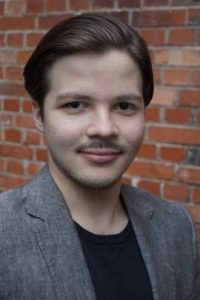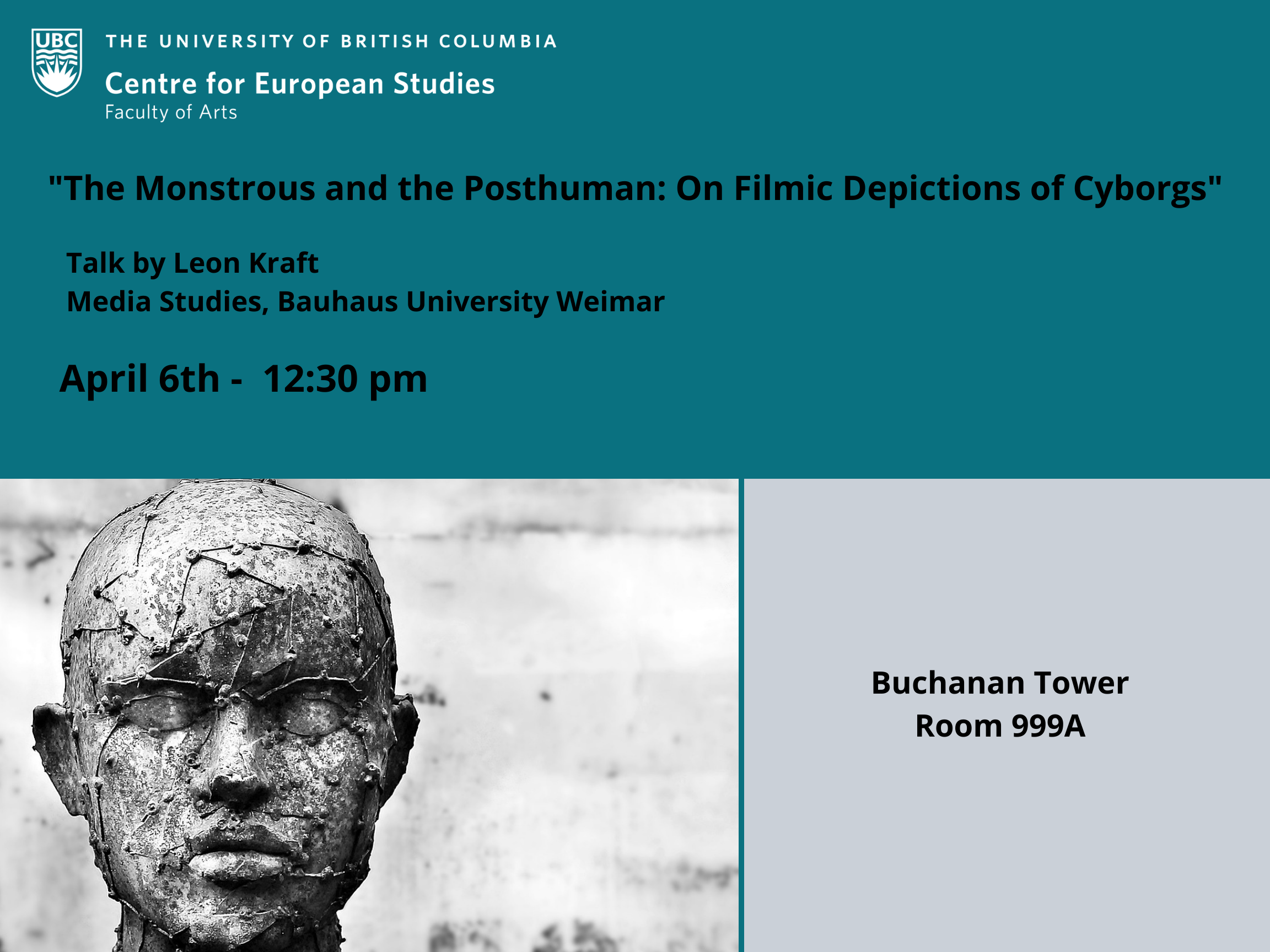 April 6th, 12:30 pm (PST)
April 6th, 12:30 pm (PST)
This event will be held in person.
Location of the talk is here, Buchanan Tower, Room 999A, 1873 East Mall, Vancouver, BC | V6T 1Z1
“The Monstrous and the Posthuman: On Filmic Depictions of Cyborgs” Talk by Leon Kraft

Abstract:
This talk will focus on the complex interplay of the monstrous and the posthuman in cinematic depictions of cyborg entities. The point of departure will be a comparison between Shinya Tsukamoto’s cult film “Tetsuo: The Iron Man” (1989) and, as a rather different canonical example, Stanley Kubrick’s “Dr. Strangelove or: How I Learned to Stop Worrying and Love the Bomb” (1964).
Although cyborg studies and (grotesque) monster studies both theorize posthuman entities, there are few attempts of combining the concepts as an analytical tool for filmic images of the posthuman. The analysis will show how in both films the grotesque and monstrous are constituents for the depiction of the posthuman cyborg and how this necessarily leads to the blurring of the analytical categories of “character” and “filmic diegetic thingness.”
This blurring (which is explicitly not a hybridization) poses the question of a new posthuman focus of film studies, which takes depictions of non-human agency into account and, borrowing from Latour’s symmetrical sociology, calls for a reconsideration of the role of things in film. Following this idea, it is possible to reconsider both, “Tetsuo: The Iron Man” and “Dr. Strangelove” as slapstick films, a genre that is a prime example for depictions of the entanglement of human and non-human agency.
Bio:
Leon Kraft holds a Bachelors Degree in German Studies and Art History / Historical Image Studies from Bielefeld University. Currently he is studying in the Master Program Media Studies at Bauhaus-University Weimar. His scientific interests focus on the history of cultural techniques, infrastructures, alternatives to anthropocentric thinking and the theory of the grotesque.